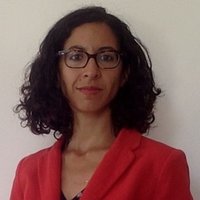Prisons in Africa: Experiences, Models, and Flows
- Duration: 5 weeks
- Effort: 10 hours
- Pace: ~2 hours/week
- Languages: English
What you will learn
At the end of this course, you will be able to:
- Describe the diversity of prisons in Africa: typologies of institutions, architectures, statutes
- Know the categories of prisoners, and their experience of incarceration
- Identify the different actors in the prison (prisoners, staff, external stakeholders) and understand their relationships
- Characterize criminal and prison policies, their genesis and contemporary transformations
- Understand international interventions in prisons in Africa (health, conditions of detention...)
- Identify reliable sources and know how to analyze them from a research or action perspective.
Description
Largely dependent on media discourse, prisons in Africa are often reduced to images of overcrowded and dilapidated spaces, signs of "States in crisis". Simultaneously, they become one of the objects of state reform, at the intersection of the judicial, security and health fields. The prison issue then appears on certain political agendas, formulated on the occasion of local position statements, in national projects or in cooperation programmes.
The objective of this course is to help you put these speeches and actions into perspective. It thus proposes to offer an understanding of the prison dynamics of the African continent in their geographical diversity and in their plural historical regimes. It addresses the prison experience through field surveys. It will also discuss the challenges of prison policies and reforms, and the strategies of the actors involved. Alternating case studies, interviews and more theoretical reflections, this course should help you to strengthen your analytical and action capacities (actionresearch, advocacy, etc.).
Format
The course consists of 5 chapters, released one per week.
Participants will also have the opportunity to assess their understanding and learning progress through quizzes, as well as through various activities and discussions.
Prerequisites
No prerequisites are required to follow this MOOC.
This course is intended for anyone who wishes to discover and deepen his/her knowledge of prison issues in Africa.
More specifically: state officials involved in the judicial prison health and penal fields, people involved in prison issues (human, health, governance), students and lecturers in social sciences (sociology, political science, anthropology, geography, history).
Assessment and certification
A successful follow-up certificate will be issued to participants who have successfully completed the proposed quizzes and completed a case study.
Course plan
- Week 1: Locking Up in Africa
- Week 2: History of prisons in Africa
- Week 3: Illuminating experiences with theories
- Week 4: Health and prison
- Week 5: Reforming prison?
Course team
Marie Morelle
Categories
Christine Deslaurier
Categories
Yasmine Bouagga
Categories
Frédéric Le Marcis
Categories
Organizations
Partners
This MOOC is proposed and carried out in partnership with the Ecole Normale Supérieure de Lyon, with the scientific contribution of the programme "Economics of Sentence and Prison in Africa" funded by the National Research Agency (ANR), UMR 8586 PRODIG (CNRS, Paris 1, AgroParisTech, Paris Sorbonne University, IRD, Paris Diderot), IMAF (CNRS - UMR 8171 - IRD - UMR 243,EHESS, EPHE, Paris 1 Panthéon-Sorbonne and AMU) and Triangle (UMR 5206- CNRS, ENS Lyon, Lyon 2, Sciences Po Lyon).

License
License for the course content

All rights reserved
"All rights reserved" is a copyright formality indicating that the copyright holder reserves, or holds for its own use, all the rights provided by copyright law.
License for the content created by course participants

All rights reserved
"All rights reserved" is a copyright formality indicating that the copyright holder reserves, or holds for its own use, all the rights provided by copyright law.





